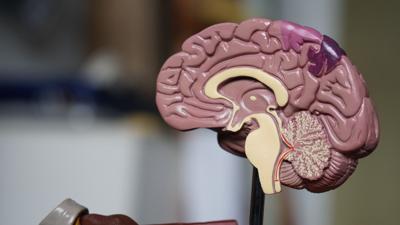
Transcranial magnetic stimulation (TMS) is a technique of treatment that utilizes magnetic fields to impact brain activity. This technique is useful in treating various conditions including obsessive-compulsive disorder, depression, and other conditions relating to the brain. The process is non-invasive and can come in handy when other treatment techniques do not offer relief. The side effects of using TMS are often mild and temporary.
Why a Magnet Affects the Brain
Transcranial magnetic stimulation is reliant upon the principles of electricity and magnetism to work. The space around the magnet is referred to as the magnetic field due to the influence of the magnet on that space. When a magnet is close to an object that conducts electricity, it results in the generation of electricity as a result of the interaction between the magnetic field and the conductive item.
This concept is important because a human brain is electrically active, and cells and neurons in the brain utilize tiny amounts of electricity to pass information in the brain and throughout the body. As such, when a magnet is brought close to the brain, it can affect its electrical activity, hence the reason why TMS targets certain areas of the brain, particularly parts that relate to feelings of pleasure, emotions, and internal decision-making. TMS requires the utilization of a magnet that can be switched on and off, something which is achieved through the use of electricity.
Importance of TMS
Transcranial magnetic stimulation is a useful treatment approach that is used when other options fail. Furthermore, it’s a preferred approach to treatment because it does not require surgery as it takes place through a person’s skin. This technique is also an alternative to other treatments such as electroconvulsive therapy in instances in which such a method is ineffective or isn’t an option.
The conditions that TMS treats vary from one country to the other, but the FDA has approved this technique for the treatment of the major depressive disorder, migraines, smoking cessation, and obsessive-compulsive disorder. Moreover, research on this technique continues to take place to determine its effectiveness in treating other conditions such as addiction, bipolar disorder, eating disorders, Alzheimer’s disease, fibromyalgia, and stroke, among others.
Does TMS Hurt the Brain?
According to research, there is no evidence to link TMS to harmful outcomes in the brain. There are instances in which people have indicated side effects, but these are rare, and there are only a few cases where experts attributed such outcomes to TMS.
Final Word
This article has looked at Transcranial magnetic stimulation as a technique of treatment for different conditions in humans. As mentioned, TMS is a technique of treatment that utilizes a magnetic field to influence the brain’s electrical activity. Transcranial magnetic stimulation has been shown to possess a life-saving potential in patients with severe depression or those with treatment-resistant depression. Experts continue to research whether TMS can be used to treat other brain conditions, creating more possibilities for treatment in the world of medicine.


(0) comments
We welcome your comments
Log In
Post a comment as Guest
Keep it Clean. Please avoid obscene, vulgar, lewd, racist or sexually-oriented language.
PLEASE TURN OFF YOUR CAPS LOCK.
Don't Threaten. Threats of harming another person will not be tolerated.
Be Truthful. Don't knowingly lie about anyone or anything.
Be Nice. No racism, sexism or any sort of -ism that is degrading to another person.
Be Proactive. Use the 'Report' link on each comment to let us know of abusive posts.
Share with Us. We'd love to hear eyewitness accounts, the history behind an article.